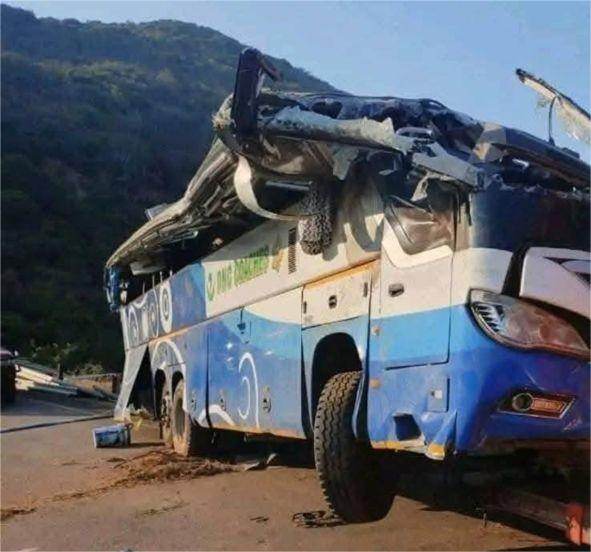By Rex Mphisa
SOUTH African authorities said they have launched a full-scale investigation after boxes of antiretroviral (ARV) drugs and other prescription medications were discovered among the wreckage of the DCN cross-border bus that crashed on the N1 near Makhado, killing at least 42 people.
The discovery has stirred a heated debate amongst social media users some quickly drawing the xenophobic card accusing foreigners of milking dry medical resources of that country.
Others were however quick to defend saying if the discovery was prescription drugs, the possibility it was bought from private pharmacies was high.
Some South Africans said if the drugs were from South African Government medical stores, it was not fair to blame foreigners but the citizens who opened the doors of the stores.
“Let us not blame foreigners it is our peopls who are trusted to keep rhese drugs, it is them who open rhe doors and take the same out,” said one South African.
The medical cargo did not have any documentation and was discovered as rescue workers sifted through the wreckage, according to reports.
An official was quoted as having said it was highly irregular the drugs did not have accompanying documentation.
“This is highly irregular,” said a senior official involved in the recovery operation. “There was no documentation for the medical cargo, and it’s unclear whether the transport of these drugs was legal or who the intended recipient was.”
Prescription drugs are medications that are legally required to be dispensed only with a licensed healthcare professional’s authorisation, known as a prescription.
This requirement is in place because these drugs have the potential for misuse or have risks like adverse effects, requiring medical supervision for safe and effective use.
In contrast, over-the-counter (OTC) drugs can be purchased without a prescription.
The discovery also points to the shortage of medical drugs in Zimbabwe where most public institutions do not have supplies and many people now resorting to herbalists.
Also, drugs are relatively cheaper in South Africa and the possibility some pharmacies resorted to black market supplies were high.
The long-distance bus, traveling from Gqeberha in the Eastern Cape to Harare, Zimbabwe, veered off the road and overturned Sunday, leaving bodies scattered across the crash site and dozens injured.
Emergency teams described the scene as “horrific,” with rescue operations lasting through the night.
Presidents Emmerson Mnangagwa and Cyril Ramaphosa have sent condolences to affected families.
“This incident is a tragedy for South Africa and our sister states of Zimbabwe and Malawi alike. This sadness is compounded by the fact that this incident has taken place during our annual Transport Month, where we place a special focus on the importance of safety on our roads,” Ramaphosa said.
“Our roads are also economic networks that bring the people of our region together across our national borders. We must do everything we can as road users, as transport operators, drivers and passengers to ensure that we stay safe and that we share our roads responsibly and with care for one another,” he said
Mnangagwa said his Government will assist in the repatriation and burial of the deceased.


